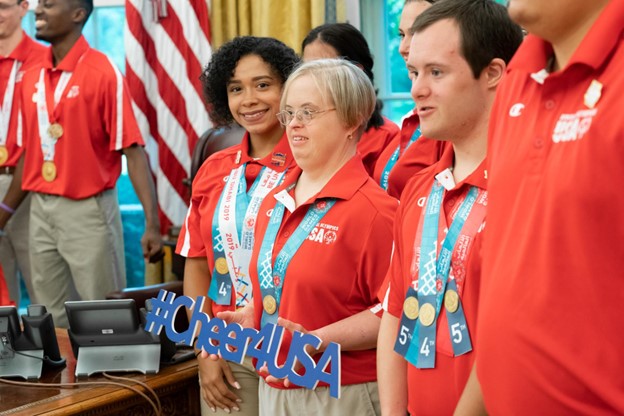Disability rights are human rights for people with I/DD (Intellectual and Developmental Disabilities). Rights are necessary for a happy life. Yet, we often see barriers for disabled people that hinder their ability to live the life they want. These barriers take different forms, such as taking away a person’s right to make decisions. Another form is to deny them the right to voice their own opinions.
This is why the HCBS Final Settings Rule is so important for people with I/DD. In this article, we will look at what HCBS is, the ways the HCBS rules protect disability rights, and tips to follow so you’re aligned with the HCBS Settings Rule. Ideally, applying these tips and information will help us move closer to an inclusive and fair society for people with I/DD.
Whose Choice is it, Anyway?

Is Privacy a Human Right?
Yes, privacy is a human right that you should give to everyone, including people with I/DD. Unfortunately, due to a lack of knowledge of the guidelines, the right to privacy and the right to choose is often taken away from people with I/DD. This is why having systems in place, like the HCBS Settings Rule, is so important.
What is HCBS?
HCBS (Home and Community Based Services) is a federal policy that safeguards the rights of disabled people. The HCBS settings rule, basically states that is the right of the individual to choose how they want to live their life. This includes the choice of where to live, how to spend their money, and the ability to receive community services, like non-disabled people.
What is the Right to Make a Choice, According to HCBS?
According to the HCBS settings rule, the right to choose means that disabled people have the same rights as people without disabilities to make life decisions. This empowers a person to lead a more self-determined life.
In addition, it gives them the support and access to resources needed to make informed and supported decisions.
How the HCBS Settings Rule Advocates for the Right to Make Decisions
The HCBS rules advocate for the right to make decisions and to receive services in the least restrictive setting. This means that the HCBS rules support people in making decisions about where they live, who they live with, and how they spend their time.
The HCBS Settings Rule gives disabled people the freedom to choose what type of services they receive and how they are received. In addition, HCBS rules ensure these services include person-centered planning. This allows the person with the HCBS waiver to make informed decisions about their life and how they want to achieve their goals.
Disabled people are also supported by HCBS rules to make decisions that help protect their health and well-being while allowing them to participate in the community.
Respecting Disability Rights Under the HCBS Settings Rule

Below we will look at three real world examples where people with IDD had barriers to their disability rights being respected. Let’s examine what should have been done to comply with the HCBS Settings Rule.
Respecting Disability Rights: 3 Real World Examples
Example 1
The mother of a young adult with IDD spoke to her case manager about a recommendation from their psychologist. The psychologist had recommended using Remote Supports Services from a specific provider.
The case manager did not think it would suit the young adult and suggested other provider options.
Applying the Settings Rule
Presenting the young adult and her mom with all of the options would have supported learning, decision-making, and choice. It is ok for the case manager to voice an opinion, but without taking away the voice and choice of the individual they serve.
Example 2
A disabled person was recommended for support services by a provider. However, the case manager of the person was reluctant to allow the provider to speak directly to the individual. After pushing for a direct consultation, the individual revealed the type of support services offered might open up the possibility of connecting more often with his family since they live so far away. She felt sad and lonely as a result. They desired to connect more often with family and friends.
They expressed that a Remote Supports Service would let them speak to a trusted party and help them to not feel lonely.
When the service provider spoke to the person’s case manager about this, the case manager disregarded the person’s feelings and desires. They instead suggested that calling a suicide hotline would solve the sadness issue.
Applying the Settings Rule
The HCBS Setting Rule is about the right of disabled people to live life as they choose. That means a life that includes their desires, and their needs.
Once the provider asked for a direct consult, the case manager should have presented this request to the individual. HCBS protects the right to participate and to be present. It protects the right to live in the least restrictive setting. That means the right to get the support that would provide him access to communicate with family and friends. If that’s his request. He should get it. Supported living, decision-making, and community access are key tenants of the HCBS settings rule.
Example 3
A person with I/DD expressed to their case manager and provider that they wanted to live alone without a roommate and did not want 24-hour support. They wanted to see if Remote Supports Service could work for them. Instead, they were placed in an apartment with roommates, with 24-hour support and denied access to Remote Supports Services.
Applying the Settings Rule
States can be penalized by CMS for non-compliance with the HCBS Settings Rule.
The HCBS Settings rule requires person-centered planning. Person-centered planning incorporates the wants, desires, and needs of the person being served. Having voice, choice, and agency is a requirement for providing services using payment via the state waiver funded through HCBS. Although the case manager connected with the vendors to explore options based on the desires of the person served. They should have moved forward with implementing the voiced choices of the individual.
How to comply with the HCBS Settings Rule
For Case Managers
- Offer all available support options: This supports decision-making. Facilitates the empowerment of their voice, and allows them a choice. Avoid pressuring them to choose a particular option.
- Promote and facilitate person-centered planning: This ensures that support services are planned around desires, needs, and goals.
- Empower a person’s right to choose: Case managers can help empower people with I/DD to choose services that are right for the individual, following a person-centered plan that helps them lead a self-determined life.
- Monitor Services and Supports: For compliance with the HCBS Rules to ensures services are allowing individuals freedom of choice, dignity, and privacy.
For Providers
- Help develop person-centered plans: Service providers can help a person with I/DD directly to make a plan that puts the person’s needs first, with their opinion and desires considered.
- Encourage being a part of the community: Providers can help people with I/DD choose how, when, and where they integrate with the community.
- Encourage freedom of choice: Providers can help people with I/DD identify what they want, give them a voice, and support them in making decisions that help them lead happy lives.
Conclusion
HCBS Rules enable the person to make decisions, facilitated by case managers, providers and caregivers. It also protects disability rights and empowers them to lead better, more self-determined lives.





